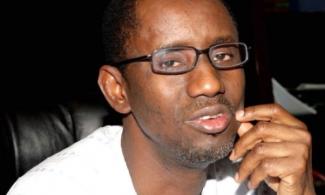
As leaders of their respective states, within the Nigerian states, within the federal structure of Nigeria, governors could make or mar the system by their personal conduct and relationship with the central government, 2011 presidential candidate of the Action Congress of Nigeria (ACN), Mallam Nuhu Ribadu has said.
As leaders of their respective states, within the Nigerian states, within the federal structure of Nigeria, governors could make or mar the system by their personal conduct and relationship with the central government, 2011 presidential candidate of the Action Congress of Nigeria (ACN), Mallam Nuhu Ribadu has said.
googletag.cmd.push(function() { googletag.display('content1'); });
Delivering a paper at a retreat for governors organized by the Nigeria Governors Forum in Sokoto, on Saturday, Ribadu said the governors need proper understanding of the position of states in the constitution and insist on asserting such rights for a proper federal system.
"For democracy that is conceived as a government which acts on the mandate of the people and is ran by them to serve their own collective interests, States, as we have them in today's Nigeria are very critical. As federating units, they are sine quo non to the survival and functioning of the centre. States do not only relinquish some of their powers to the federal government, they equally feed the centre with income that keep the wheels moving."
As units of the federation, he said, states were the original owners of powers which they donated to the federal government for the purpose of central coordination, adding that there was no basis that governors would now be harassed using the powers that they agreed to donate to the federal government under the present arrangement.
googletag.cmd.push(function() { googletag.display('content2'); });
"The Second Schedule of the Constitution, which more or less draws demarcation on the borderline of powers between the federal and state governments, provides for explicit legislative provisions between the centre and the units as well as areas the two share jurisdiction. The Exclusive List, for example, mentions issues like Currency and Bills, Aviation, Customs and Excise, Trade and Commerce, Maritime, Internal and External Loans, Policing and Law Enforcement.
"This present dicey situations in some aspects as states find it difficult or impossible to control certain things like the economy or market policies. In some aspects, the Constitution even provides contradictory powers such as the issue of Law enactment and enforcement. While states are empowered to formulate Laws, the enforcement is exclusively that of the Police, which is under the Federal Government," he stated.
Ribadu, who is a retired Assistant Inspector General of Police (AIG), reflected on recent happenings in the country where the Police are allegedly being used to intimidate perceived opponents. He, however, expressed skepticism on the call for state police as it may give room to "abuse of the same instrument at the units level similar to what we are witnessing today at the centre."
Reminiscing on his work as chairman of the Presidential Task Force on Oil Revenue, Ribadu advised the states to push for roles in how the nation's income is generated, especially the oil industry.
"Constitutionally, states control 49 percent (including the local governments allocation) of all revenues accrued to the government. As such, States ought to have a say in what happened at the NNPC, oil industry being the mainstay of our economy. Without state representation, the Federal Government could decide on what to accounts for while the place is being run like a personal venture with the President appointing anybody to superintend without any semblance of openness and transparency," he stated.
To deepen democratic culture, according to Ribadu, states should institutionalize good governance, respect for rule of law and tolerance of dissenting views, ""Nigerians would love to see States teaching the federal government lessons in opening democratic space by conducting free and fair elections at the local government level, which is within their purview."
The former EFCC chairman advised the governors to eschew corruption as a major step in accomplishing their tasks. This, according to him, will not only clean the system but also immune them from getting into the net of law enforcement agencies, which are under the federal government.
"To deepen democratic culture, governors would have to sit up to deliver on their mandates. It is what the people see that will make them believe in the system and it is when they buy into the concept that they participate; which is core to democracy.
"Governors, as drivers of their states, are therefore in a position to help in entrenching democracy in their domains. The saner democratic space we crave for at the centre must be seen in practice at the federating units, reflected in tolerance, respect for rule of law and improvement on people's lives," he said.
Ribadu hailed governors in the Forum for exemplifying ways to deepen democracy and federalism by. "By the actions of some of our governors, they have proven to be bearers of democratic badge of honour. The election into the leadership of this Forum is a good pointer to this. By resisting the move of a few to control a party that should otherwise belong to all, you have deepened our democratic process.
"And some of you have exhibited great courage in withstanding intimidation and persecution, using the powers of state. By doing so, you have elected to strengthen our federalism and challenge why a Force you actually donated to the central government will be used against you," he added.
googletag.cmd.push(function() { googletag.display('comments'); });